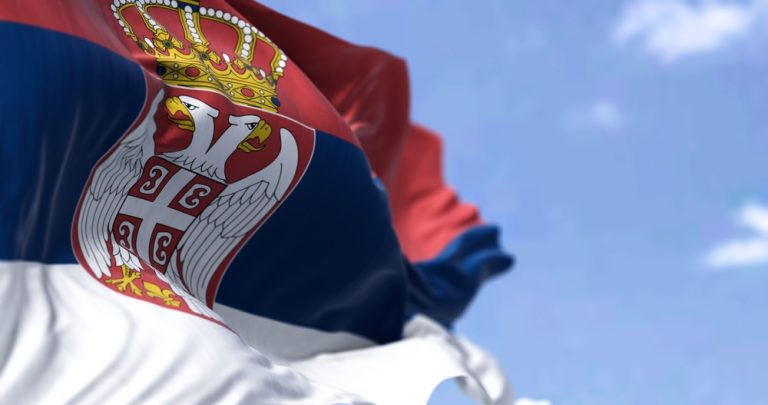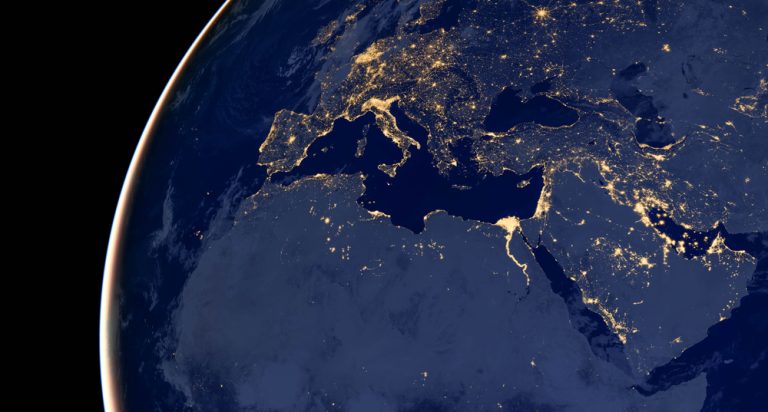
A “race” war on the streets of France. What was it and where will it lead?
For almost a month now, France has been shaken by riots and protests by Muslim youth, which many are calling a civil war or even a race war. Is this true, or is the scale of the tragedy overblown and exaggerated? From the outside, the riots have taken on a truly threatening character, and even forced President Emmanuel Macron to urgently leave the EU summit. However, it cannot be overlooked that his reaction to these events was quite tragicomic. Thus, the French leader, whose credibility in the country regularly breaks all anti-records, paradoxically stated that the cause of the events was computer games, and the rioters were “poisoned by them” and “repeat their plots”. In order to cope with the situation, Macron suggested stricter censorship of the Internet. Apart from the fact that this explanation has nothing to do with real deep social and ethnic causes, the personal political goals of the current president are behind it. First, it is an excuse to tighten control over the activities of the opposition and opponents of the current government, measures practiced by many countries previously stigmatized by Macron as “dictatorial regimes.” Notably, at the same time, a new mobilization law was passed that allows the requisitioning of any property from French citizens under investigation.
Secondly, it is a curtsy to his close allies in Washington. The fact is that Macron blamed not only social networks in general, but also Chinese TikTok in particular for stirring up unrest. The main outcome of what is happening in France may be increased pressure on TikTok amid a new round of trade wars with China. The European Union, under pressure from the United States, began restricting TikTok last year and in France it is no longer allowed to be used by civil servants. In the U.S., almost 15 states are also trying to squeeze TikTok out of their markets, and in Montana it has been banned from app stores. The White House is trying to organize a de facto raid on TikTok, forcing it to sell it to one of the American IT giants. The Chinese flatly refuse to go along with that. So now they are starting to get into trouble in the U.S. and European markets, using this as blackmail. It is important to realize that Europe itself is now split over China. Brussels is afraid to make a complete break in relations with Beijing, but they are not giving up their sanctions. France and Germany are still delaying, fearing the collapse of the economy in case of conflict with the Chinese, and the main anti-Chinese battering ram is Italy, where the right-wing government wants to withdraw the country from the One Belt, One Road project. Chinese investment in the EU has already collapsed to a nine-year low in 2022, and the U.S. is trying to use the European economy as a battering ram against China. And Macron is consistently implementing this plan with his statements and actions.

However, if we disconnect from these motivations, which are far removed from the experiences of ordinary French people, the long riots have caused enormous damage to the country’s economy, which had already suffered from the spring strikes against pension reform. Since the looting may continue for another month, it is not yet possible to calculate the exact damage, but there are plenty of events in recent history to compare. For example, the “yellow vests” demonstrations lasted more than a year. According to the authorities’ estimates, the damage to the economy then amounted to about 2.5 billion euros. 5 thousand businessmen and 13 thousand enterprises suffered. If we go back to the current events, already on July 1, 2023, in just the first 4 days, 12 shopping malls, 250 tobacco stores, 250 bank branches, 200 supermarkets, as well as many cafes, stores and cars were looted or destroyed. Jean-Luc Chauvin, Chamber of Commerce and Industry Aix Marseille Provence, stated that by the beginning of July, almost 400 outlets had been damaged, and in the same period, the damage to Marseille’s stores due to the protests exceeded € 100 million. In order to at least give a rough idea of the total losses, one should keep in mind that every day about 800-100 people are detained by the police, 50-60 police officers are wounded and injured, 1000-1500 cars are burned, up to 2000 fires are recorded and 150-200 buildings are damaged.
However, the murder of a 17-year-old Arab youth and the subsequent protests are important not primarily for their economic but for their political consequences. And so divided French society has finally split into supporters of law and order, who are identical to right-wingers and nationalists, and those dissatisfied with racism and police brutality, and they are represented by leftists and descendants of migrants. The country’s largest police union, Alliance Police Nationale, on Friday condemned the “brutalizers” who burned thousands of cars and looted many stores. This is no accident, and police officers in France today are more consistent haters of the left and migrants than even members of far-right groups. Not surprisingly, left-wing politicians criticized the police statement, noting that it intensifies the confrontation. Right-wing politicians, for their part, were outraged by the swift and indefinite detention of the officer “responsible” for the death of Nahel Merzouk, and the fact that donations to the policeman’s family amounted to almost € 1.5 million against only € 500,000 for the relatives of the deceased showed well that many do not believe that the role of “victim” and “perpetrator” in this incident is so clear-cut. The leader of Macron’s Renaissance party, Stéphane Sejournet, attacked the left for refusing to condemn the violence, accusing them of inciting hatred, and supported the police who are trying to restore order. For the traditional right-wingers and nationalists, Macron is not “his own”, but the murder of the young man came at a very inconvenient moment for the president, when the wave of protests against raising the retirement age had almost subsided and did not pose a political threat to him. In such a situation Macron has to be right, even if it is a forced and situational position.
In such a situation, the nationalists were more radical and direct in their speech. Éric Zemmour, leader of the right-wing French Reconquête party, said that France was now in the early stages of civil war. “We are in the early stages of a civil war. This is an ethnic war. We see clearly that it is a race war. We see the forces involved. We need a leader, decisive and firm. The problem is primarily the number of immigrants,” he said. Zemmour is a descendant of the Black Feet, French people who lived in Algeria. His parents fled to France in the 1950s from a massacre by independence fighters in that country, and his attitude toward migrants from North Africa is easily understandable, and the events at hand evoke clear analogies for him. Given that Zemmour is Jewish, he was also alarmed by the fact that protesters, mostly from Islamic Africa, desecrated the Holocaust memorial and trampled on the French flag: today the level of anti-Semitism in the Arab world is an order of magnitude higher than in Europe, and Arabs bring it with them when they come to European countries. However, against this background, the authorities seem not to notice what is happening, and mockingly arrested the head coach of PSG soccer club Christophe Galtier on charges of “racism”, and ignored the case when Syrian migrants cut off the hand of a Frenchman who tried to save his car from burning.

Will the current unrest, which is similar in scale to the 2005 riots, escalate into a civil war? And this is unlikely, despite all the damage they have caused, public anxiety and apocalyptic pictures of protests and fires. It should be understood that the rioters are not organized, they do not put forward serious political demands. Their goal is to loot and destroy everything around them, and, although such riots are outwardly spectacular and cause considerable damage, they taper off rather quickly and do not carry a far-reaching political agenda. In addition, the army, police, and law enforcement agencies are on the side of the authorities, which means that the rioters have no chance in a prolonged open confrontation with the government in case of large-scale hostilities. However, there is no one to start these actions: the rioters are smashing everything around them, obeying the effect of the crowd and the instinct of destruction, and not to change France. Consequently, they have absolutely nothing to die for on the battlefield. We should not overlook the fact that the current riots are overlapping with the discontent over the French pension reform, and that, in turn, with the “yellow vest” movement. For the past two decades, France has been constantly on strike, protesting and rioting. This is, of course, an indicator of the crisis state of the French political system, but it is far from over. It should be understood that France is a country of revolutions, and over the last 200 years there have been five of them, not counting permanent uprisings, strikes, protest marches and “student revolutions”. Therefore, being in such a politically “excited” state is in a sense natural and habitual for France. For example, every night from December 31 to January 1, several thousand cars are burned, and this is perceived as a sad norm.
Ultimately, the current revolt is a consequence of the ultra-liberal attitude of the French authorities towards emigrants and their descendants. Big business and the elite associated with it were counting on the influx of cheap labor and were also guided by the plan to keep ethnic French in check with the help of disorderly migrants. However, people from the former French colonies came to the country for the good life, while hating France, the French and everything French. The French have noted the difference in French attitudes toward the murder of a teenager, a descendant of Algerian migrants, by a policeman and the murder of a French girl by an immigrant from Algeria. Because of her brutal murder, there were no riots and mass protests in France, no politicians expressed indignation, no one mentioned her. There is nothing surprising in this, because the ideology of tolerance that has taken over any country devours it from within like a parasite. Against this background, Macron plays the role of a “strong leader”, saying that the protests are illegal and no one has the right to revolt against the people’s representatives, but the sincerity of these statements is not believed by either the left or the right. His hypocrisy is on the surface, and everyone recalls his words about similar events in Lebanon, where he democratically declared that “revolution does not happen by order, it is made by the people.” But Macron is in no danger today, and the pogroms will subside, if not in a week, then in a month. But hypocrisy and passive inaction never lead to anything good, even if chance has saved us from the worst scenario. Socially, religiously and ethnically divided France will experience many more such protests, and in 5-10 years they may lead to a real revolution and civil war.

